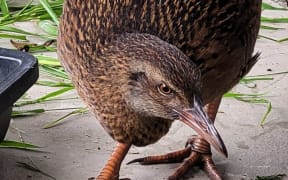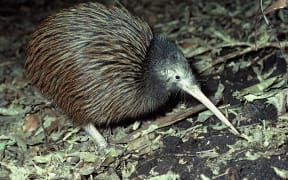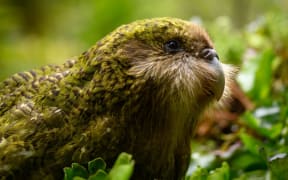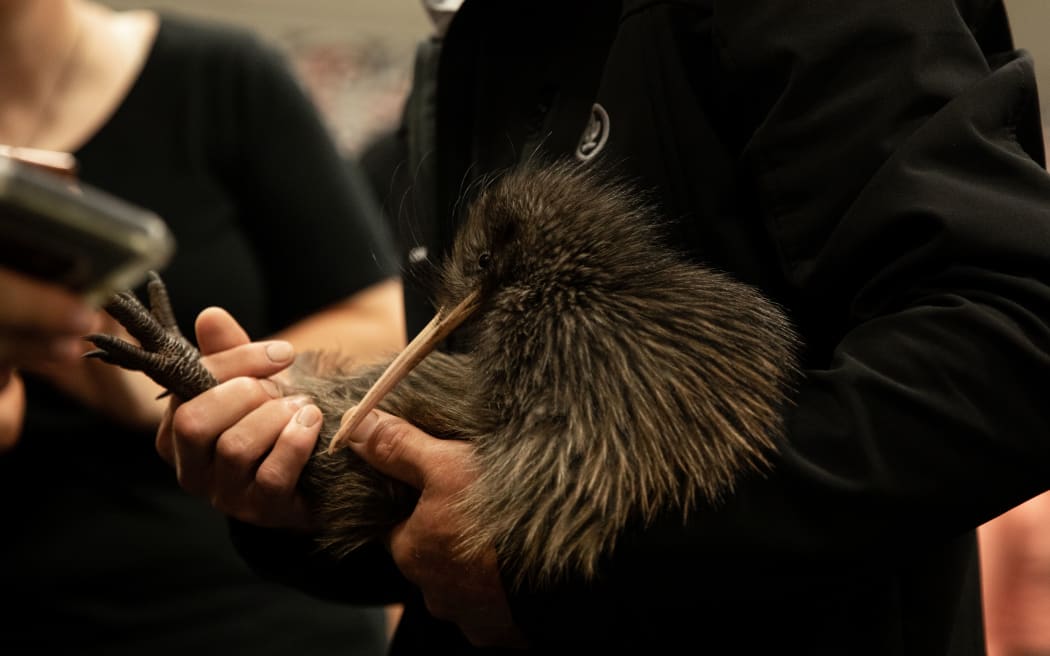
A North Island brown kiwi being held by a participant at a pōwhiri at Pipitea Marae, before its release into the hills of Wellington. Photo: RNZ / Samuel Rillstone
50 kiwi are being released into the hills of Wellington which conservationists are calling an important step into restoring the country's wild kiwi population.
The first 25 North Island Brown kiwi made their way down from Sanctuary Mountain Maungatautari in Waikato and were released this morning, while the other half will follow a week later.
The flightless birds were welcomed by Taranaki Whānui at a pōwhiri at Pipitea Marae at sunrise this morning.
Their arrival marks a huge step forward to help boost the number of kiwi to the hills of the capital and a milestone for multiple groups including iwi, landowners, founders and sanctuaries.
The group of 50 are part of Kōhanga Kiwi, a breeding programme managed by Save the Kiwi that is Aotearoa's largest predator-fenced sanctuary at 3400 hectares.
Save the Kiwi executive director Michelle Impey said the Kōhanga Kiwi programme was a huge step in helping revive the kiwi population across Aotearoa on an ongoing basis.
"If you were to leave a couple of breeding pairs of kiwi to their own devices in the wild, it would take a very long time for them to grow into a thriving population."
"Using Kōhanga Kiwi, we now have a ready-made population of kiwi that can be gifted to areas where kiwi are locally extinct," Impey said.
Save the Kiwi worked in partnership with Ngāti Korokii Kahukura who were the gifting iwi and alongside the the Capital Kiwi Project team.
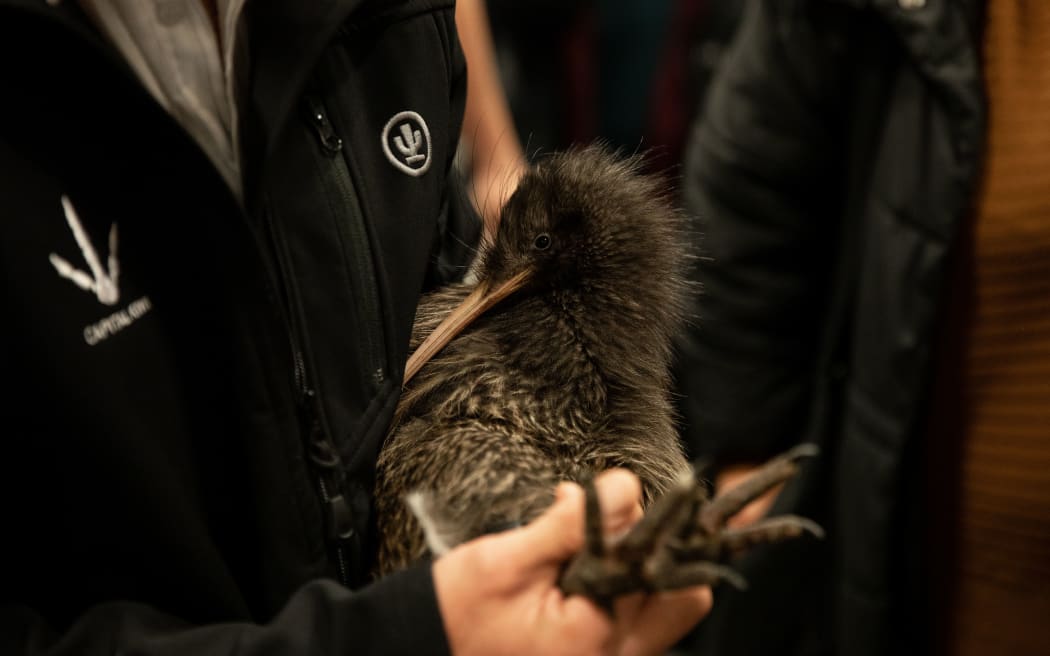
One of the North Island brown kiwi released on Tuesday. Photo: RNZ / Samuel Rillstone
Capital Kiwi Project founder Paul Ward said the partnership represented a change in the way conservation was done towards repopulating kiwi.
"Today's release demonstrates that the future of conservation lies in genuine partnerships - between iwi, landowners, and local communities. The partnership with Save the Kiwi matches 24,000 hectares of predator-controlled kiwi habitat with the country's most ambitious kiwi breeding programme," Ward said.
The Capital Kiwi Project is a community initiative which works across 24,000 hectares or mostly private land to restore a large wild kiwi population in the south and west of Wellington.
It contains around 4500 stoat traps, the largest in the country to help kiwi live in an environment where it can thrive.
